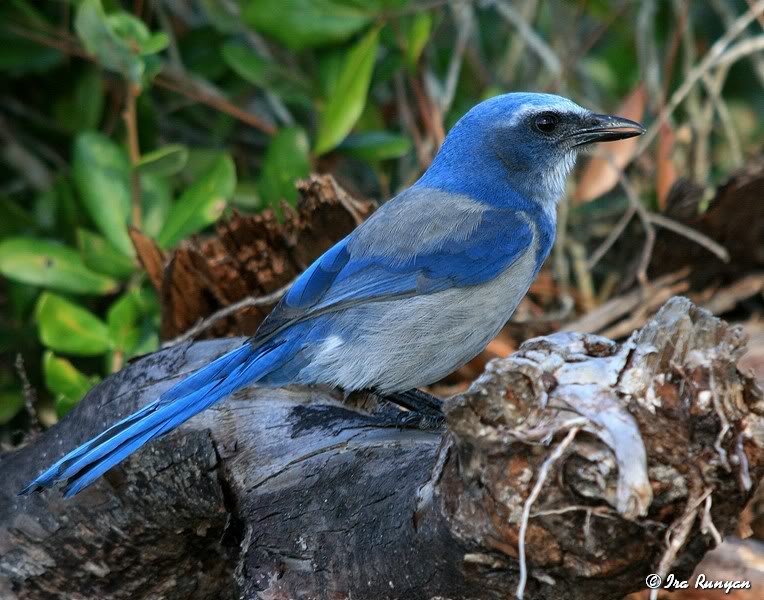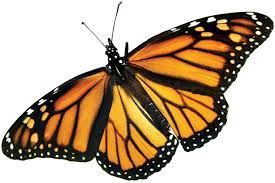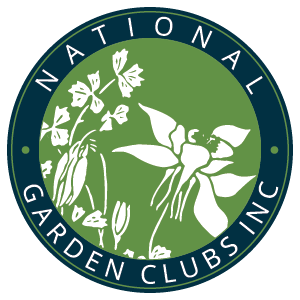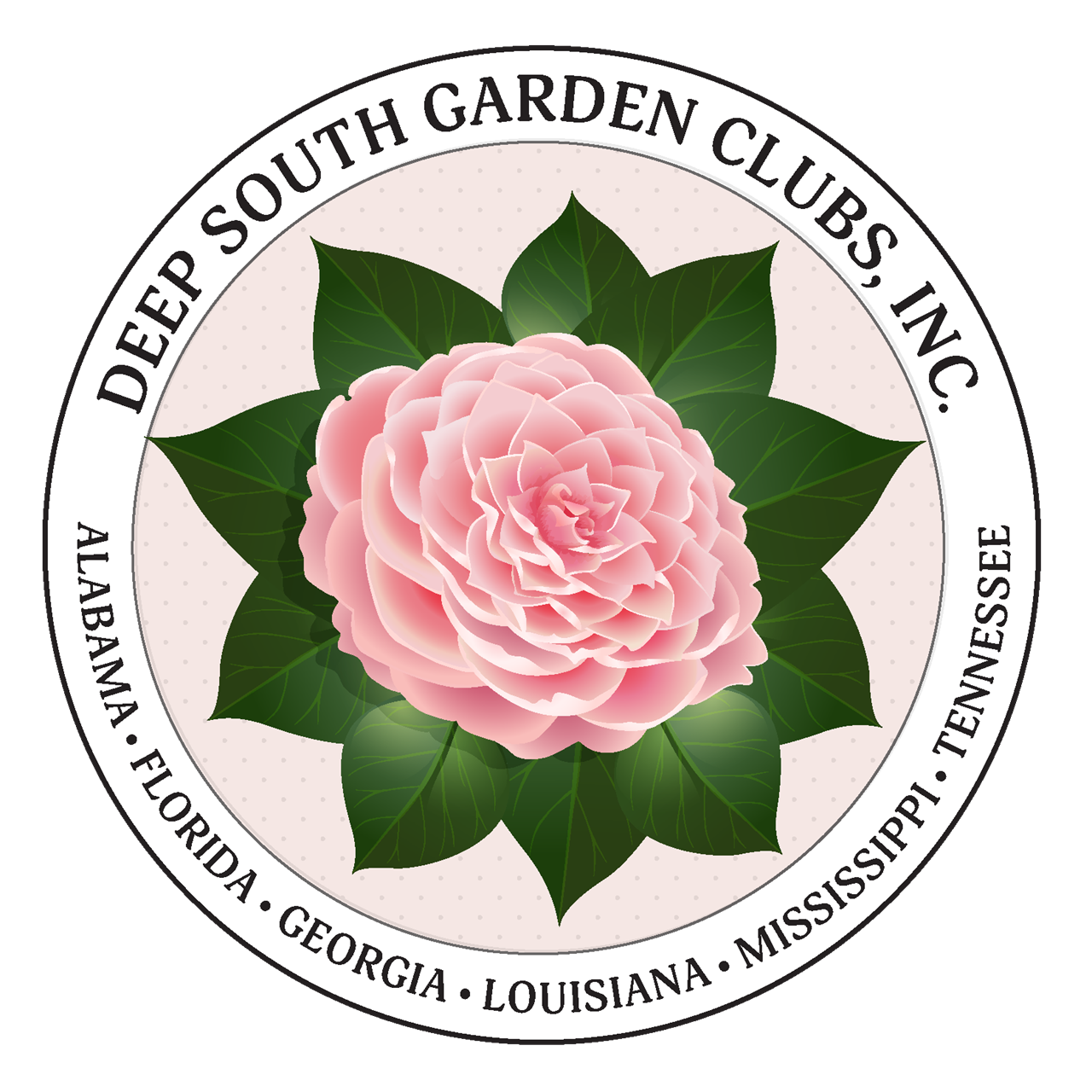BIRDS, BEES & BUTTERFLIES
There are many opportunities available with Florida Federation of Garden Clubs, Inc., the Deep South Region, and the National Club regarding Backyard Habitat, Butterfly Gardens, Birds, Bees, and Butterflies. Please read below for more information about how you can get involved.

Backyards provide an essential habitat for many species of birds. You can draw many types of birds to your yard, even our state bird the Mockingbird, which is a superb songbird and mimic. It can be heard singing all night especially under bright springtime moonlight. Ensuring that birds have good sources of food, nesting sites, clear water, and protective cover becomes more important every day, as more habitat is lost to development, degradation and fragmentation. Birds are important indicators of environmental health and play a significant role in maintaining the earth's ecological balance-propagating plant life as pollinators and seed dispersers and controlling insect populations. Birds bring beauty and enjoyment to our lives. Let us remember pesticides are toxic to organisms beyond the targeted pests and their use is rampant in this country and pervasive in major river basins and aquifer systems. Try to reduce all pesticides, but eliminate those used on lawns. We have always enjoyed the beauty of birds so no matter where you live there are birds that need your help.
Did you know there are over 20,000 different types of bees?
Bees are incredibly important for both the environment and human society. Here are a few reasons why bees are important:
1. Pollination: Bees are excellent pollinators. While collecting nectar, bees unintentionally transfer pollen from the male part of a flower (the stamen) to the female part (the stigma), facilitating the fertilization process and enabling the production of seeds and fruits. This is crucial for the reproduction of many plant species, including those that are important for human food production.
2. Biodiversity: Bees play a significant role in maintaining biodiversity. By pollinating a wide variety of plants, they contribute to the preservation of different ecosystems and habitats. Bees help sustain the diversity of flowering plants, which, in turn, supports other organisms like insects, birds, and mammals that depend on those plants for food and shelter.
3. Food production: Bees are essential for agriculture. Many crops, including fruits, vegetables, nuts, and oilseeds, rely on bee pollination for optimal yields and quality. It's estimated that bees contribute to the production of approximately one-third of the food crops consumed by humans worldwide. Without bees, the availability and diversity of our food supply would be significantly reduced.
4. Honey production: Bees produce honey, a natural sweetener that has been used by humans for centuries. Honey is not only delicious but also has various health benefits. Beekeeping and honey production also support local economies and provide livelihoods for many people worldwide.
Regarding the types of bees, there are over 20,000 known species of bees globally. These species can be broadly classified into several groups, including honeybees, bumblebees, and solitary bees. Honeybees, such as the Western honeybee (Apis mellifera), are social bees that live in large colonies and are managed by beekeepers for honey production. Bumblebees are
also social bees but have smaller colonies. Solitary bees, on the other hand, do not live in colonies and build individual nests. Examples of solitary bees include mason bees, carpenter bees, and leafcutter bees. Each type of bee has its own unique characteristics, behaviors, and ecological roles.
Pollinator Certification Application
One Green Planet Amazing Bee Photography

Why you should plant native larva plants?
Butterflies are insects that belong to the order Lepidoptera, which also includes moths. They are known for their beautiful and diverse patterns of colored wings. Butterflies undergo a fascinating transformation process called metamorphosis, which includes four stages: egg, caterpillar (larva), pupa (chrysalis), and adult butterfly.
Here are some key facts about butterflies:
1. Appearance: Butterflies have two pairs of large, delicate wings covered in tiny scales. These scales are responsible for the vibrant colors and patterns seen on their wings. The wingspan of butterflies can vary greatly depending on the species, ranging from less than an inch to over a foot.
2. Diversity: There are approximately 20,000 known species of butterflies worldwide, with different colors, patterns, and sizes. Some of the most well-known species include the Monarch butterfly, Painted Lady, Swallowtail, and Blue Morpho.
3. Life Cycle: Butterflies lay their eggs on specific plants, which will later serve as food for the caterpillars. The eggs hatch into caterpillars, which then undergo several molting stages as they grow. Caterpillars have chewing mouthparts and feed on leaves. Once the caterpillar is fully grown, it enters the pupa stage where it undergoes a remarkable transformation inside a chrysalis. After a period of time, an adult butterfly emerges from the chrysalis.
4. Habitat: Butterflies can be found in various habitats worldwide, including forests, grasslands, meadows, gardens, and even urban areas. Different butterfly species have different habitat preferences, depending on their feeding and breeding requirements.
5. Feeding and Pollination: Adult butterflies primarily feed on nectar from flowers using their long, tubular proboscis. While feeding, they inadvertently transfer pollen from one flower to another, making them important pollinators in ecosystems.
6. Migration: Some butterfly species, like the Monarch butterfly, undertake long-distance migrations. These migrations can cover thousands of miles and involve multiple generations of butterflies.
7. Importance: Butterflies play a crucial role in ecosystems as pollinators. They help to fertilize flowers and facilitate plant reproduction. They also serve as a food source for other animals, including birds, bats, and insects.
It's worth noting that due to habitat loss, climate change, and other factors, many butterfly species are facing population declines and are considered vulnerable or endangered. Conserving their habitats and protecting their populations is important for maintaining biodiversity and ecosystem health.
Let's work together with the Florida Native Plant Society and our FFGC Wildflower Chairman in planting to encourage butterflies to stop in our gardens for nectar and to lay eggs. Spread the word by working with your Junior Gardeners, your schools and community. Then apply for the FFGC Butterfly Sanctuary Certificate. Remember, butterflies are self-propelled flowers.
Pollinator Certification Application.png)

